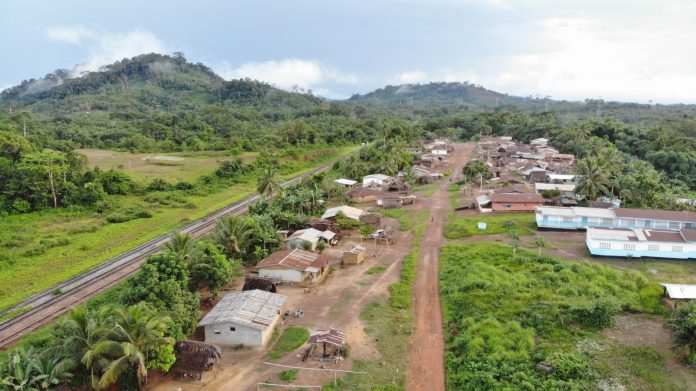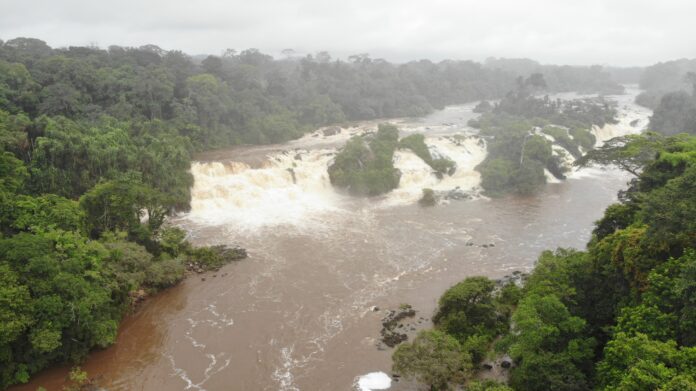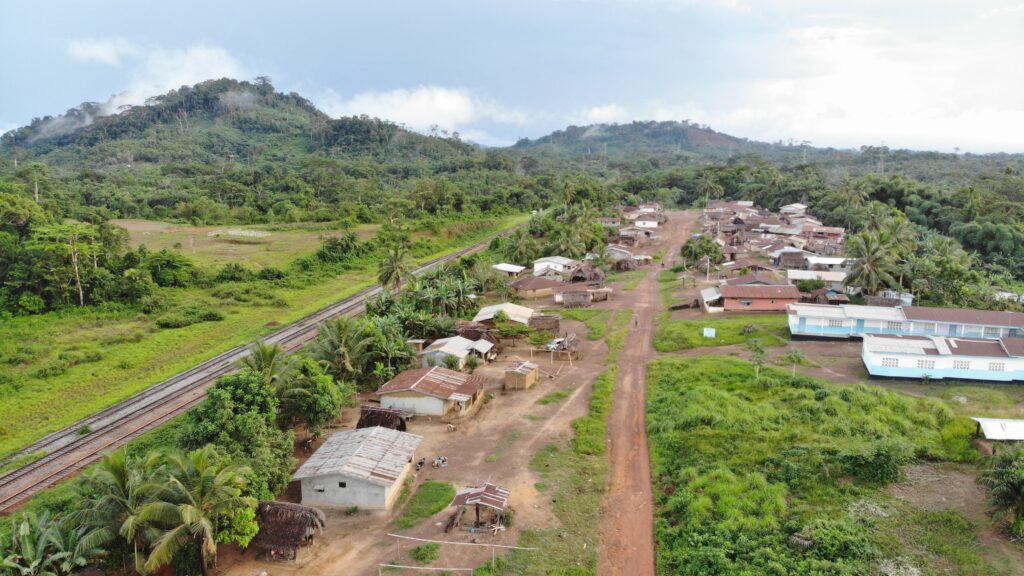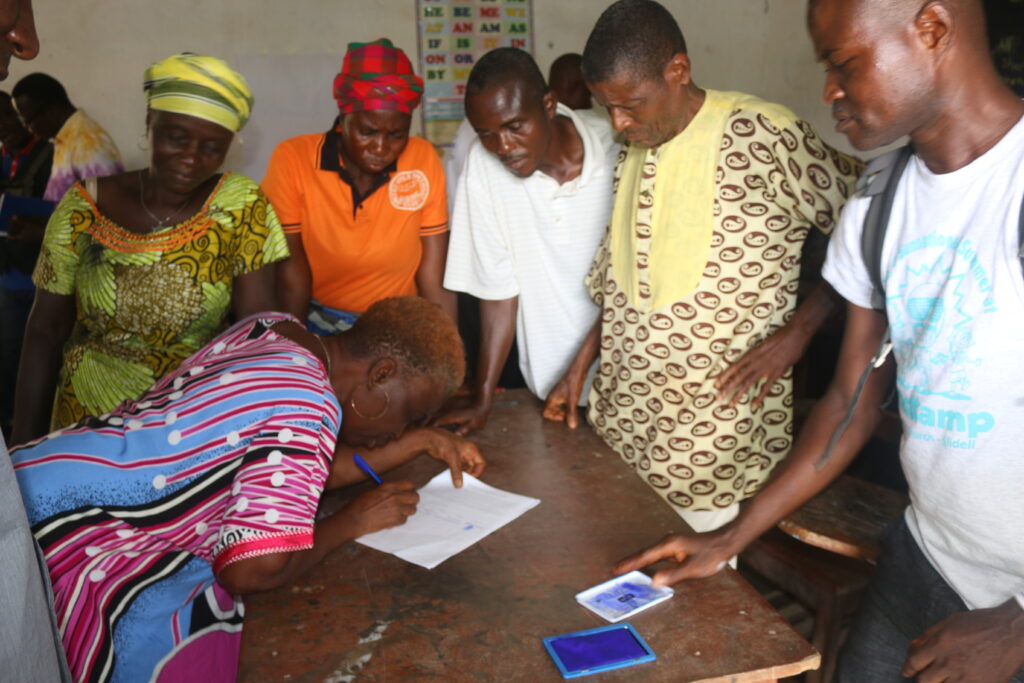Top: Rock Crusher Town in Quikon, Kokoyah Statutory District in Bong County. The DayLight/Derick Snyder
By Esau J. Farr
ROCK CRUSHER – A clan in Kokoyah District, Bong County, is close to qualifying for an official survey for a customary land deed. The Quikon Clan recently signed boundary MoUs with its neighbors, the Vehn and Sawulah Clans, leaving it close to completing the legal process.
“The signing of the MoU will help stop conflicts among the present and future generations because the document will show them the boundaries of our land,” says Hellen Kpelletay, a Quikon resident. “It is important for us because it will help end confusion among us and other clans near us.”
In August 2023, Quikon self-identified as a landowning community, the first step in getting title to an ancestral territory. It later adopted a bylaw and constitution, established a community land governance structure, and conducted mapping in line with the Land Rights Act.
The law recognizes collective ownership for people who have lived in areas for generations, once they meet legal requirements. Before the law, rural dwellers were considered caretakers of customary land, not owners.
Quikon is one of the 39 communities Parley Liberia, a Gbarnga-based NGO, is assisting as part of a 3.5 million project provided by the Sweden-based International Land and Forest Tenure Facility.
Before the MoUs, Quikon had disagreements with Vehn and Sawulah on the north and the Sawulah Clan southwest.
For the issue with Vehn, Togar Glaygbo, a Quikon elder, claimed a plot of land there with some cash crops. However, his claim was rejected by some townspeople, including Vehn’s Clan Chief Amos Gardea. Gardea argued that Glaygbo had deserted the area for decades. The disagreement was later resolved after the interventions of local leaders and Parley Liberia.
“We agreed to resolve the matter for the sake of peace. We are one people, from the same background,” says Amos Gardea, the Clan Chief of Vehn.
“I am happy because after the signing of the boundary MoU, I heard that my village, I have in Vehn Clan, is still there for me,” Glaygbo tells The DayLight.
Unlike Vehn, Quikon’s dispute with Sawulah lasted for several years. It was a boundary dispute between Doe Town in Quikon and Nangboe Town in Sawulah. Doe Town argued that a creek was the boundary, while Sawulah contended it was further into Quikon. Later, Sawulah accepted Quikon’s argument.
Very happy
The ceremony for the boundary MoUs was witnessed by Bong County Land Administrator, Amelia D. Cassell, who appreciated locals for their efforts.
“Once the MoUs were signed successfully today, we have hopes for the next step (confirmatory survey),” says Cassell. “The MoU signing is a very good thing because it is in the interest of the citizens, and the various clans around us will benefit.”
David Kangar, Quikon Land Development and Management Committee, called on the Land Authority to complete he process.
“I am very, very happy because I see a way forward. I see the people of Quikon receiving their deed soon,” says Roseline Mulbah, Parley Liberia’s program officer. “It was very, very difficult for us to reach this far.”
To complete the Quikon boundary process, locals must survey a portion of land where the Jor River in Bong meets the St. John River. Once that boundary is established, the LLA will conduct an official survey and present the clan with a customary land deed.




